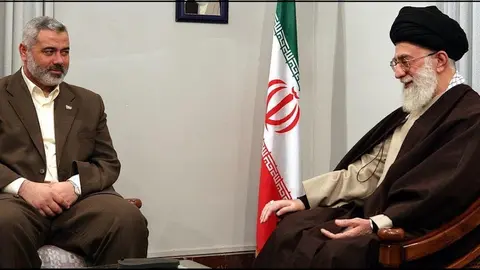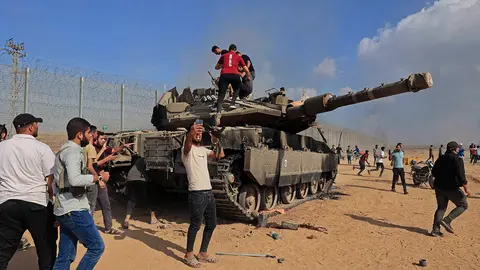New order, new Yom Kippur

An initial analysis of Hamas's brutal surprise attack on Israel suggests that the terrorist group has been planning the action for some time with a priority objective: to reactivate the conflict by taking advantage of Israel's internal political weakness, in order to provoke the outbreak of a war that could turn into a larger-scale regional conflict that would disrupt the equilibrium achieved after the end of the wars in Syria, Iraq and Yemen.
The signing of the Abraham agreements in recent years between Israel and some Arab countries (Emirates, Bahrain and Morocco) and the political rapprochement between Israel and Saudi Arabia along the same lines, had put the Israelis on a path of regional normalisation, interpreted by Palestinian radicals as an insurmountable abyss for projecting their political claims and anti-Semitic discourse in the Arab world.
To this end, Hamas has chosen the date of the 50th anniversary of the Yom Kippur war, the last time an Arabist coalition led by Egypt and Syria was backed by the Arab public at large. Since then, the Israeli state had not declared a state of war, although armed defence against various radical Islamist groups (Hezbollah, Jihad), Palestinian groups (Hamas, Fatah or the Intifadas), dictators (Hussein, Al Asad) or anti-Semitic states (Iran), did not stop in the following decades. Two of the Israeli army's last interventions in Gaza in 2008 and 2014, and other reactions to contain the intifadas, were strongly criticised by important sectors of international public opinion.
However, since the last decade, Israel has managed to turn around, at least partially, its image as a destabilising actor in the region due to its intransigence and repressive policies. It has become a renewed strategic actor, focused on innovation and leading multilateral projects, and capable of not intervening directly in nearby conflicts, even if they entail risks to its security. Hamas' unconscionable attack is a provocation for Israel to wake up from the dream of peaceful regional coexistence, for its population to recover the feeling of permanent fear, and for the government to react with a level of response that will make the fiction of a new, different and more stable order disappear.
But in a second analysis more open to the transformations taking place on a global scale, one would have to ask whether Hamas has conceived of other reasons for carrying out its terrorist action at this time. And whether those reasons have been promoted from other centres of decision-making or destabilisation. With an uncertain world order and no clear leadership, the United States withdrawn from the Middle East, the war in Ukraine ongoing and the major powers without a common position to resolve the conflict, and with economic instability present. A series of factors make it possible to understand Hamas's decision as an attempt at provocation on a larger scale that destabilises the regional order in the Middle East but also has repercussions for the weakened international order. Firstly, because a new focus of violence is appearing that makes it more ungovernable, secondly because divisions of criteria between different powers can be reproduced, and thirdly because fundamentalist radicalisation can make its appearance in North Africa or other territories driven by the Palestinian Islamist guerrillas, historically financed by Iran.
The US, the EU, the UN and a significant part of the international community have condemned the Hamas attack and supported the legitimacy of the Israeli response. Urging Netanyahu to a proportionate use of violence would be desirable in human and political terms. But governments' attention must be heightened by the possibility that the fires lit in Gaza could spread to other neighbouring political territories.



